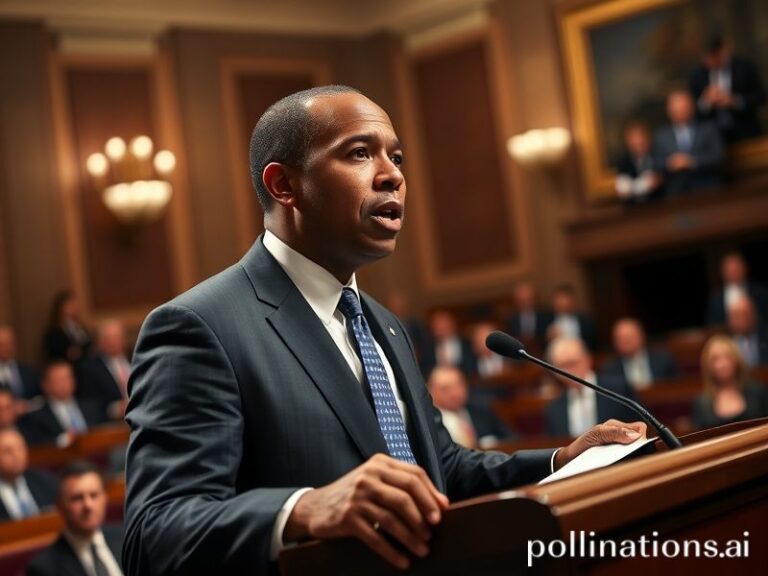Astros vs Rangers: How a Texas Feud Became the World’s Priciest Distraction
Houston, We Have a Border Problem: How a Lone-Star Dust-Up Became the World’s Most Expensive Therapy Session
By Our Man in the Cheap Seats
The Astros and the Rangers—two baseball teams whose names sound like rival oil cartels—are busy trying to murder each other with fastballs and walk-off home runs in a little American regional squabble grandly labeled the ALCS. To the uninitiated, it’s merely another installment of Texans hating other Texans, the geopolitical equivalent of siblings arguing over who left the cattle gate open. But peer through the haze of brisket smoke and suddenly this tilt looks less like sport and more like a quarterly report on the state of the planet.
Consider the cast. On one side, the Houston Astros—fresh off a sign-stealing scandal so brazen it would make Cambridge Analytica blush—have rebranded themselves as the lovable penitents of the Gulf Coast. Their opponents, the Texas Rangers, spent the GDP of Slovenia on a new stadium with a retractable roof and air-conditioning so aggressive it could refrigerate a small Balkan republic. Both franchises, naturally, are subsidized by taxpayers who are simultaneously told that universal health care is “unrealistic.” Somewhere in Davos, a venture capitalist is taking notes.
Globally, the series is being beamed into sports bars from Lagos to Lahore, where insomniacs marvel that grown men in pajamas can earn more in three hours than a Bangladeshi garment worker will in three lifetimes. The broadcast rights alone—sold, sliced, diced, and resold like subprime mortgages—feed an entire ecosystem of satellite trucks, betting apps, and crypto-enabled fantasy leagues. El Salvador’s president has probably already declared Bitcoin legal tender on the outcome of Game 5.
And then there’s the merch. Somewhere in Guangzhou, a factory is stamping out “H-Town vs. D-Town” T-shirts so fast that workers haven’t seen daylight since the last lunar festival. Each garment ships with a carbon footprint the size of Luxembourg, but fear not: both clubs have pledged to be “net-zero” by 2040, a date so conveniently distant that most of us will be compost by then.
The geopolitical metaphors practically write themselves. The Astros, once a gleaming emblem of post-industrial optimism, now carry the baggage of systemic cheating—think FIFA with better tacos. The Rangers, meanwhile, are the expansionist newcomers, armed with cash and a suburban fortress designed to survive both climate change and the zombie apocalypse. If you squint, it’s Russia vs. NATO in cleats.
Yet the real entertainment is psychological. These teams are acting out the collective id of a nation that can’t decide whether it wants to build walls or stadium roofs. Every 98-mph heater is a primal scream against inflation, student debt, and the creeping suspicion that the algorithm has already decided who wins. International viewers recognize the ritual: bread, circuses, and a brisk seven-inning distraction from the melting ice caps.
Bookies in Macau report record handle; diplomatic cables from Ottawa warn of “excessive Canadian politeness” being weaponized in Toronto sports bars; the French ambassador to Washington has filed an official complaint after discovering that the concession-stand “croissant-waffle” is neither. Even the Vatican is tracking the series—though only because the over/under on “acts of divine intervention” has reached 1.5.
When the last champagne is sprayed and the confetti is swept into the same landfill that will one day welcome our democracy, the ledger will still show a planet tilting toward 2.7°C of warming and a global wealth gap visible from the International Space Station. But for a fleeting week in October, the Astros and Rangers have offered the world a rare bipartisan achievement: we’re all equally distracted.
And perhaps that’s the point. Somewhere a refugee raft bobs in the Mediterranean, a Siberian wildfire gnaws at the permafrost, and a Sri Lankan tea picker wonders if tomorrow’s wages will buy rice. Meanwhile, in Arlington, a $1.2 billion coliseum erupts because a man in tight pants just hit a horsehide sphere over a fence. Humanity, it seems, will always find the budget for existential denial.
Play ball.







